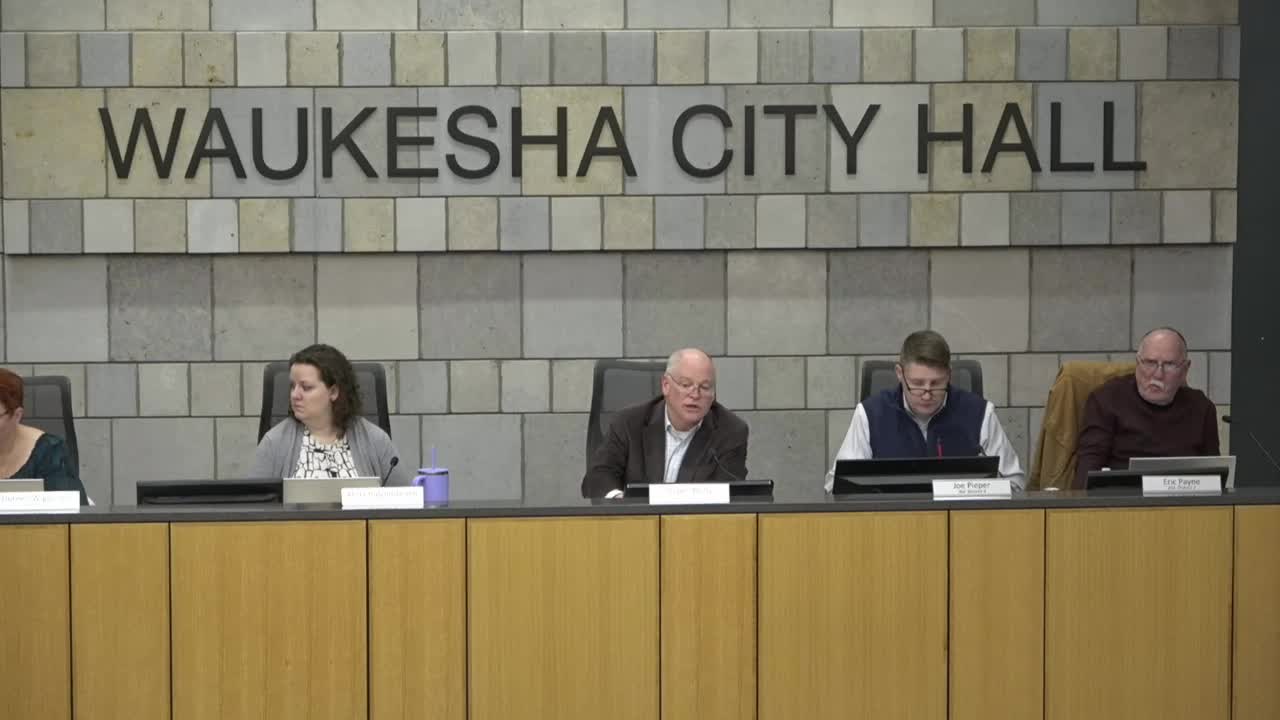Waukesha council approves plan change to allow residential reuse of former UWM campus
Get AI-powered insights, summaries, and transcripts
Subscribe
Summary
The Waukesha Common Council on Tuesday unanimously approved a comprehensive-plan amendment to change the 75.9-acre University of Wisconsin'Waukesha campus site from institutional to mixed residential, clearing the way for future rezoning and developer proposals.
The Waukesha Common Council on Tuesday unanimously approved a comprehensive-plan amendment to change the 75.9-acre University of Wisconsin'Waukesha campus site from institutional to a "mixed residential" land-use category, clearing the way for future rezoning and developer proposals.
Doug, a city community development staff member, told the council the site sits south of Northview Road and north of Summit Avenue along University Avenue and is owned by Waukesha County. "After all of our studies, it was decided a residential use would be the most appropriate for the property," Doug said during a presentation to the council.
The amendment does not itself rezone the property; rezoning would be a later step requiring separate applications, Plan Commission review and council action. Dale Shaver, a Waukesha County official, told the council the university plans to close the campus in June 2025 and that the county holds a lease with the UW that runs through 2040. Shaver said the county has spent about $11,000,000 on building improvements since 2009 and that preliminary demolition estimates for removing campus buildings are roughly $6,000,000, noting potential state grant support of about $2,000,000 to offset costs.
Why it matters: The site is surrounded largely by single-family neighborhoods and several city parks; changing its land-use designation opens the site to residential development that could add taxable property to the city's rolls and alter traffic, stormwater and neighborhood character. City and county staff emphasized that utilities on University Avenue provide access and that certain steep and wet areas are likely to remain open space or require further study.
City staff outlined key constraints and attributes: about 71 developable acres within the 75.9-acre parcel, wetlands and wet soils on the south end that require further investigation, steep topography on the north end, a city water tower that must remain in place, and airport-related height limitations that make buildings around 50 feet the probable maximum. Staff also said the University Avenue corridor provides existing traffic signals and utilities that would support redevelopment.
Public commenters and neighborhood representatives raised concerns about green space, stormwater and neighborhood compatibility. Maggie Flood, who lives at 806 Maple Way North and whose property abuts the site, urged the council to require "major consideration for having a small green space and a neighborhood park" and said she feared changes in grade during redevelopment could push stormwater onto adjacent yards. Dwayne Minor, who lives at 2423 Sunkist Avenue, asked whether property lines could be adjusted to preserve a large hedge that currently serves as a visual buffer.
Craig Swerdout of 2325 Imperial Lane criticized an earlier public open house exercise and questioned whether the October meeting's dot-mapping reflected genuine preferences. Stan Flack, a longtime former city recreation supervisor, urged the council to require neighborhood parks or usable open space in future proposals and to avoid row-house-style layouts that offer little backyard space.
Aldermen who spoke said the amendment is a first, necessary step to allow more detailed plans. "I don't think institutional will fit in there," Alderman Rick Lemke said, adding he will work with the county and developers to protect trees and manage flooding issues. "I'm gonna support the amendment this evening because it simply just starts the ball rolling," Alderman Piper said.
County and city staff said that conversion of the campus buildings to K-12 or other institutional uses would be costly because of centralized heating and cooling systems and building layouts designed for higher-education uses; Shaver said that retrofits of individual buildings would make reuse economically impractical in many cases. Staff described a community outreach effort that included interviews with developers, a site tour for development professionals and an informational meeting in October that drew about 100 attendees.
Next steps: With the comprehensive-plan amendment approved, the county and potential developers can pursue rezoning and site-specific proposals. City staff said detailed traffic, stormwater and environmental studies will be required and that any rezoning and development proposals will return to the Plan Commission and Common Council for public hearings and votes. The county and UW decisions about lease and campus closure will shape the project timeline; Shaver said the university intends to vacate the campus in June 2025.
The council voted unanimously to approve the amendment; the motion passed with a full council in attendance.
